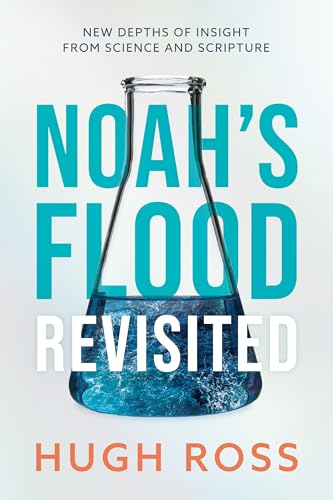
Noah's Flood Revisited: New Depths of Insight from Science and Scripture

Thus, even a mere 2% change in the Sun’s luminosity would be enough to exterminate all plant and animal life on Earth.
Hugh Ross • Noah's Flood Revisited: New Depths of Insight from Science and Scripture
Since 1983, the International System of Units has defined the velocity of light as exactly 299,792,458 meters/second, using this value to precisely establish the length of a meter.
Hugh Ross • Noah's Flood Revisited: New Depths of Insight from Science and Scripture
Independent methods used to date these splash patterns reveal that rain began to fall prior to the existence of humans and birds and mammals. Fossilized raindrop imprints show that rain was falling in an era when Earth’s air pressure was less than half its present level,5 a level so low as to be severely restrictive to any creatures’ habitat range
... See moreHugh Ross • Noah's Flood Revisited: New Depths of Insight from Science and Scripture
Nature’s Record on Rain and Rainbows Abundant physical evidence shows that rain was falling on Earth long before the human era, even before the existence of plants and animals.
Hugh Ross • Noah's Flood Revisited: New Depths of Insight from Science and Scripture
A widespread belief among both Christians and non-Christians is that Genesis teaches that no rainbows occurred on Earth until after Noah’s flood.1 This view arises from a misunderstanding of what Genesis 2 adds to the creation account in Genesis 1.
Hugh Ross • Noah's Flood Revisited: New Depths of Insight from Science and Scripture
Noah’s flood, even if it were globally extensive and as maximally energetic as the laws of physics permit, can’t come remotely close to explaining the known quantity, extent, and diversity of Earth’s biodeposits.
Hugh Ross • Noah's Flood Revisited: New Depths of Insight from Science and Scripture
The Antarctic ice today measures 4,897 meters (15,650 feet) deep, in its thickest region.19 The annual snowfall on the continent averages just 165 millimeters (6.5 inches),20 and in the thickest regions, less than 30 millimeters (1.18 inches).21 Therefore, even if one assumes that none of the snow and ice in Antarctica were to sublimate
... See moreHugh Ross • Noah's Flood Revisited: New Depths of Insight from Science and Scripture
Consider the huge quantity of ice on Antarctica and Greenland. If the climate of Antarctica and Greenland had been tropical prior to Noah’s flood, then the global flood models allow less than 4,500 years for the formation and accumulation of all Antarctica’s and Greenland’s ice.
Hugh Ross • Noah's Flood Revisited: New Depths of Insight from Science and Scripture
advocates of a global flood offer this three-part response: